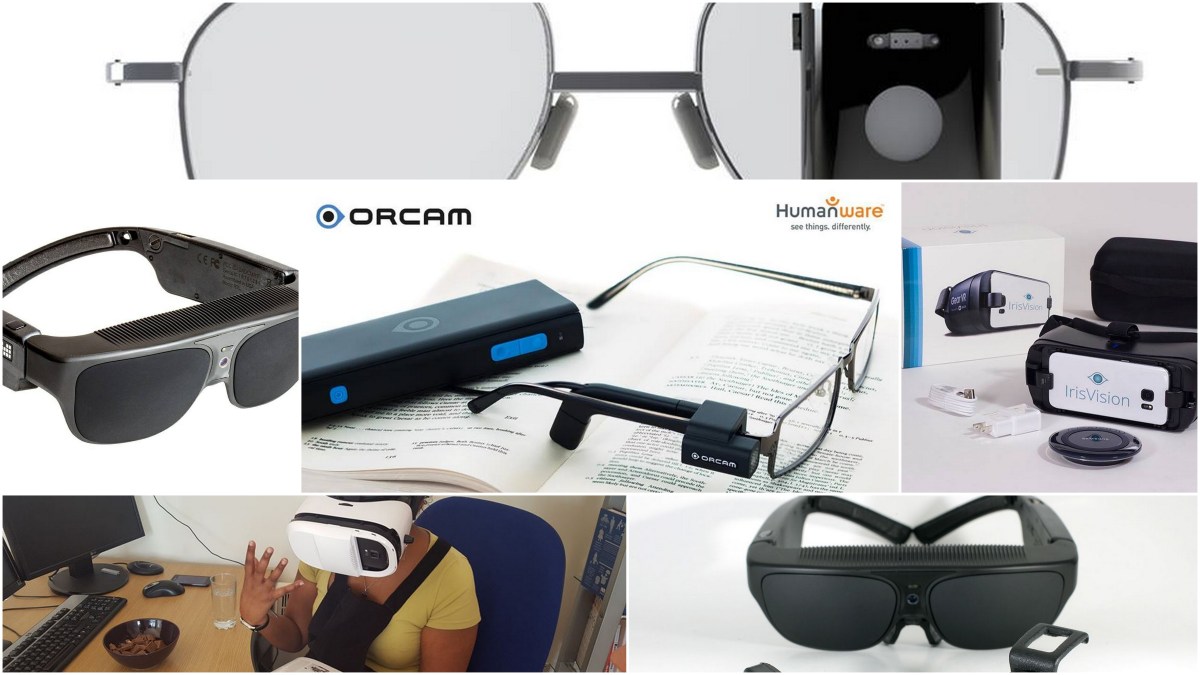There are many devices and apps that help those with low vision such as handheld magnifiers, apps for smartphones & tablets that magnify what the camera sees, devices & apps that convert text to speech, CCTVs (Closed Circuit TVs, not the CCTV for security), apps & devices for object identification and more. There are advantages and disadvantages to these that depend on the needs of the person.
One of the newest advances in technology is that of the handsfree – also called headworn – devices in the category of wearable technology. You’ll hear them called: smart glasses, electronic glasses, low vision headsets or goggles.
As the technology changes, so will the features & costs so check with the manufacturers or distributors for up-to-date information.
Updated: 10/2/2019 [3/21/2018, 1/1/2019]: This information is changing with new entries in the field and new technology. I’ll try to update this as soon as I have time. In the meantime, you can check with each company for the current capabilities and costs.]
General tips for evaluating
None of these are safe to use while driving and in many states and countries are illegal to use.
- The longer you can try the device, the better, although many people report that they can get an idea of whether it will work or not rather quickly. The devices that magnify don’t work for everyone, it depends on the specifics of one’s vision.
- Look for a money back guarantee, find out how long you have to return it (30 days, 60 days), and ask who pays for the return shipping.
- Find out how much it will cost to get the device shipped to you. Some of the devices are made in another county & the shipping & insurance costs are high.
- You’ll want to have a good warranty that covers materials and shipping.
- Do you get free training? Some companies will send a representative to your home. What kind of support do they provide such as a toll-free phone number and/or online support.
- Are their payment plans?
- If you have a problem with motion sickness, the devices that have video cameras in them (the ones that magnify) are NOT intended to be used while walking and definitely NOT for driving.
- Find objective reviews not just testimonials on the manufacturer’s website.
- Consider getting a CCTV instead or at least compare the capabilities of the CCTV vs. the headworn device. Many people want the headworn devices because they are hands-free but CCTVs are also hands-free for many of its uses.
This table gives you the basic information about the various devices such as price and general features. I’ve also included links to the manufacturers. We think it is important to get objective reviews and we’ve found that the best ones are those on YouTube done by Sam, a vlogger (video blogger) who has Stargardt’s Disease and who works for the Bluegrass Council of the Blind. His YouTube channel is called The Blind Life. He’s not reviewed the 2 devices in the UK so I’ve provided other video reviews.
As you move your cursor down the table, each row will be highlighted.
[table id=1 /]

